The Legend of Our Family
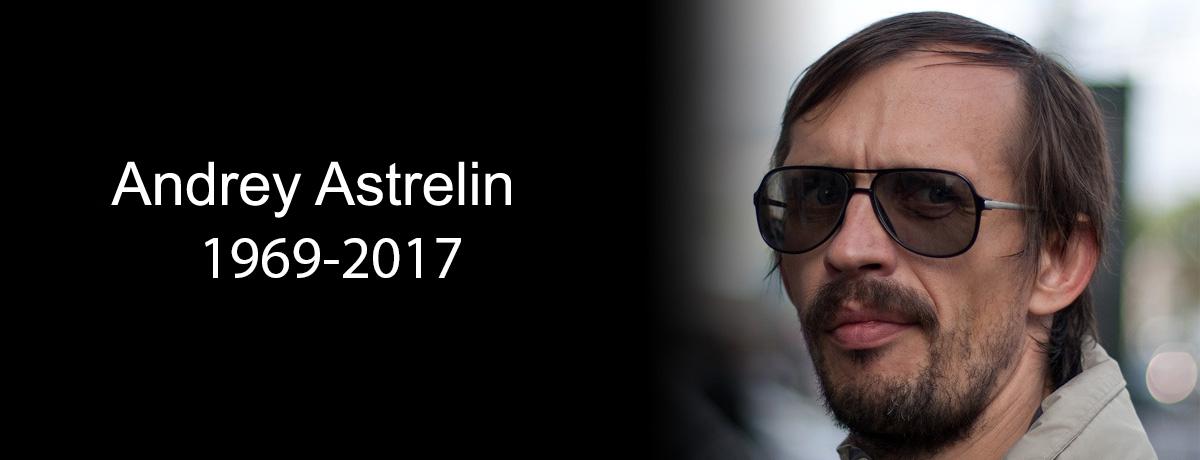

On January 13, 2017 we experienced the tragic loss of our son Andrey Astrelin. Two days later he was buried on January 15 which would have been his 48th birthday.
Andrey was born in the severe winter of 1968/1969 in the family of students of Novosibirsk University in Akademgorodok, Siberia. His father Vitaly would become a plasma physicist, and his mother Lydia mathematical economist. For her that January examination session was harsh. She took most of the exams early and the remainder after Andrey's birth. Later, Andrey's grandmother arrived and took him by train to Lidia's parents' house in the town of Guryevsk. At -40° C outside, the temperature on the train was barely reaching 10° C. They arrived safely in Guryevsk where Andrey lived for the next two years with his grandmother's sister Lela.
What affected Andrey's early development and decided his mathematical fate? Was it his mother's intensive math studies for the exams? Or high cultural level of Lydia's parents' big family: Glafira Ivanovna, Pavel Xenofontovich and their five sons? Or was it Andrey's nurse Lela's quick and lively wit? Perhaps, all of that together.
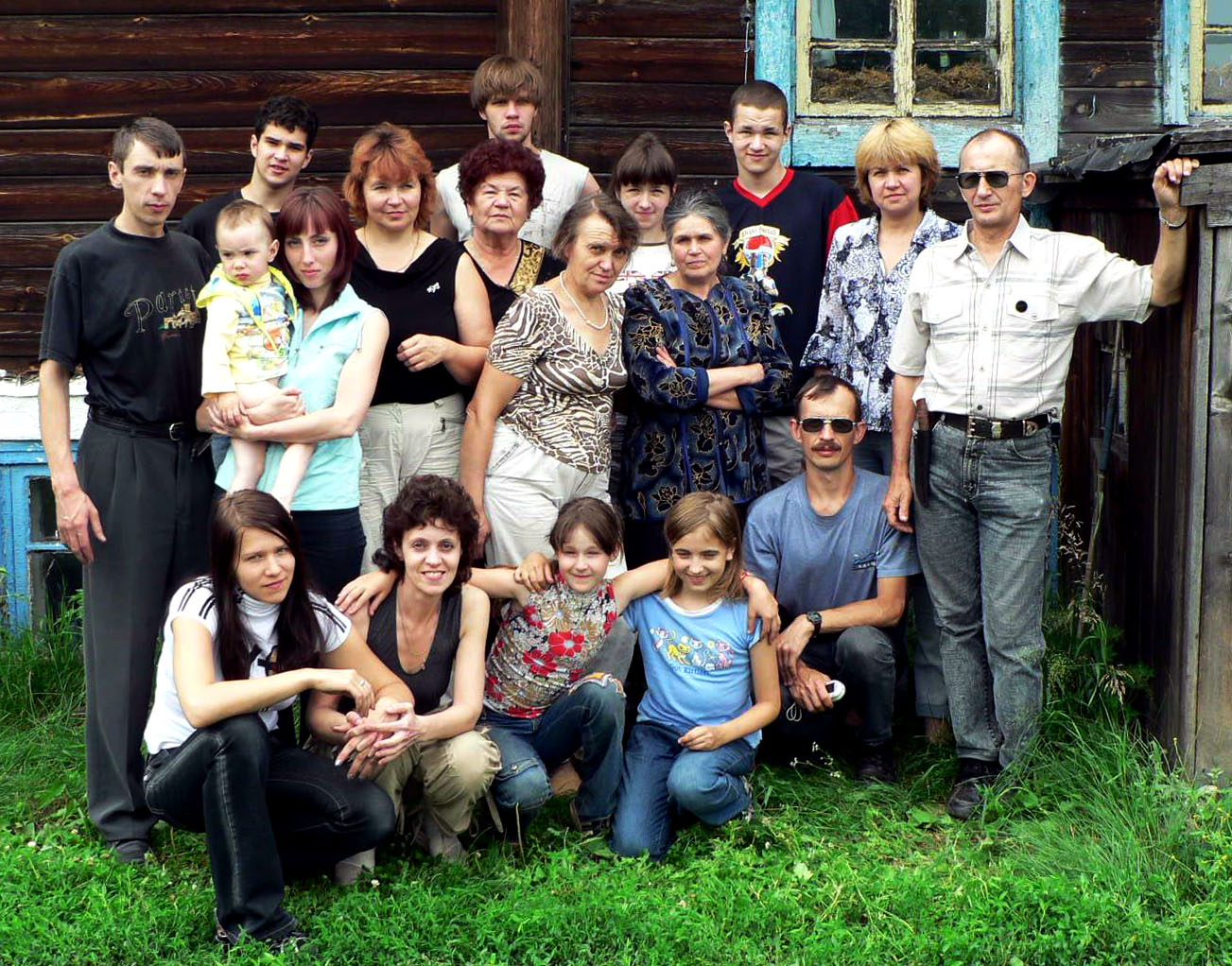
Andrey began reading books before he even turned three years old. After returning home he was assigned to a kindergarten with highly qualified teachers. Our attempts to limit his intensive reading led to the opposite result. Soon enough, at the age five, he discovered the world of numbers, to which he dedicated the rest of life.
At 7 and a half years old, Andrey went to a regular school. One month later, at our first meeting with the teacher, she asked us: "Who prepared your son for school?" "No one. We just answered his questions". "You know, there's nothing for him to do in the 1st grade, he already knows everything. Same for the 2nd grade. As for the 3rd grade program, he only needs to fill in some gaps in Russian Language and Literature. I suggest we do that for this academic year, and in the Spring transfer Andrey to the 4th grade, of course, after medical and special pedagogical commission. Do you agree"? - "Yes."
So it happened. After a medical exam and transferring to the 4th grade we took him on a tour of Lake Baikal as a reward for his good studies. We arrived by train to tourist camp 'Baikal' at the mouth of the river Utulik. From there with a group of about 20 we took a six-day hiking tour in massif Khamar-Daban to Sobolinyi lakes. Food, tents and sleeping bags - all was in backpacks. At 8 years old, Andrey was the youngest in the group, but bared all the severities of the trip. One episode was memorable. Once after a day-long hike we sat in the evening around the campfire singing songs. One young man in the group named Kostya was getting ready to enter a military school after finishing high school. He came up to the fire and said "In the school I could not understand what logarithms are about, and this flea - Andrey - explained it so I understood it!" Everyone marveled, laughed and went on singing. We seriously wondered: what future was our son to see?
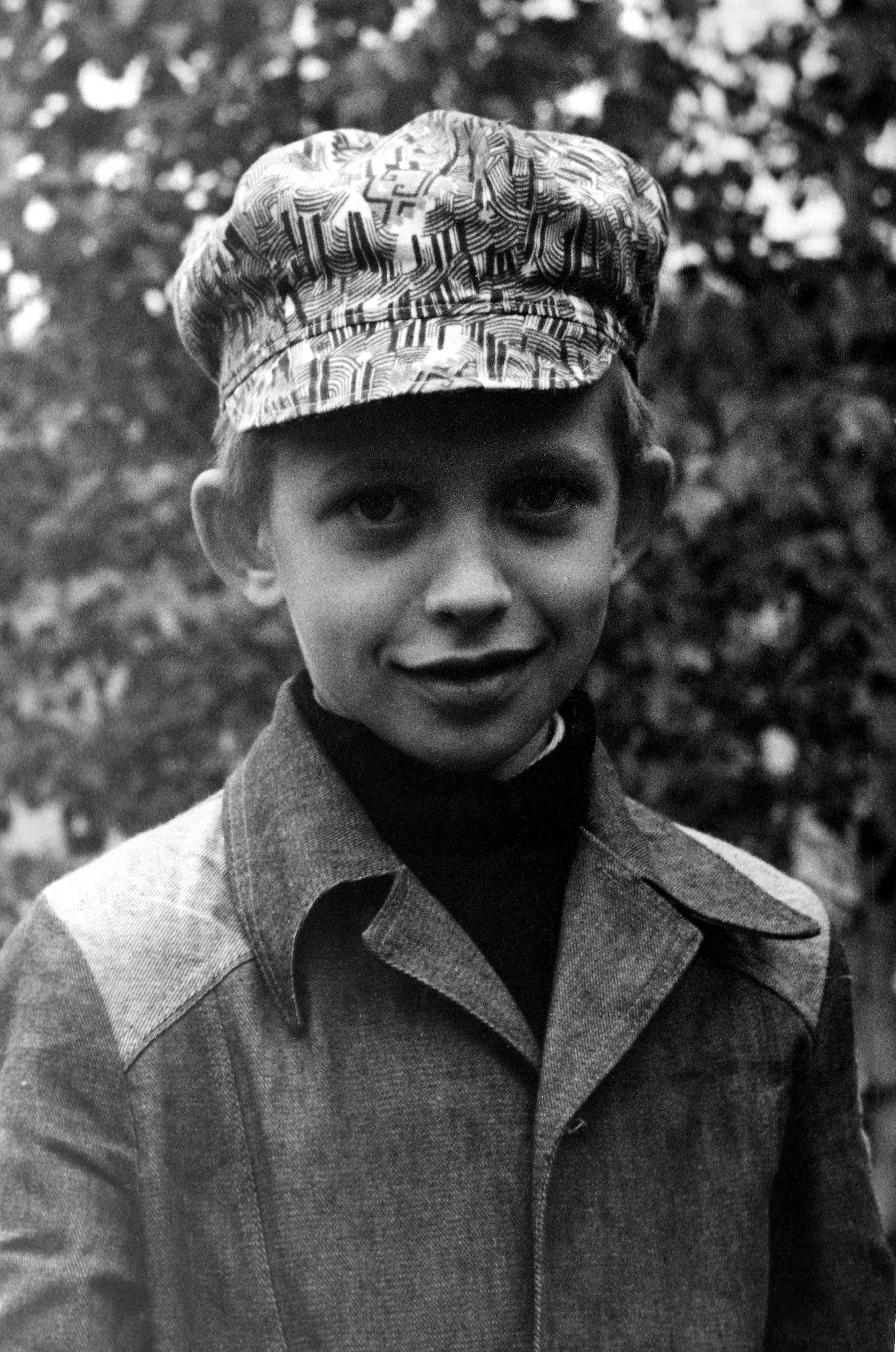
The first teacher carefully chose the class for Andrey to attend. It had a very experienced math teacher Anna Alekseevna Savilova. The class leader, Svetlana Dmitrievna Lomakina did not teach any subject in this class but was a good organizer and cared about the children. Anna Alekseevna directed Andrey to help other children, read anything he wanted in class but be ready to answer questions when he was asked. Sometimes she would ask him to explain the solution to a problem. After his explanation she would usually say: "Now, children, I will explain to you what Andrey just said." We were worried that Andrey would be abused by his classmates since he was two years younger and physically weaker. But often when Andrey was approached by kids from higher grades asking for help with their assignments, they warned "Hands off Andrey! Or you will have to deal with us!"
Soon we noticed that Andrey's passion for math was understood and shared by few of his classmates. They interacted with each other building friendships, while he was busy reading books on math and solving problems. Yet, Andrey instantly came closer with those who were on the same wave with him, who found vivid interest in magic of numbers and geometrical figures. We discussed the situation with Svetlana Dmitrievna and planned weekend hiking trips that would help draw Andrey together with his classmates. But it came clear that, he continued solving problems in his head without any books. Then, we assigned Andrey to CYuT (Club of Young Technicians) in Novosibirsk Akademgorodok, where kids supervised by engineers were taught to build mechanisms but Andrey had no interest in that. It seemed like his thing was theory not practice.
From 6th and 7th grade Andrey took part in school olympiads - competitions in various subjects. Although he was good in practically all subjects, solved all problems and correctly answered all questions, he missed some of the contests since they took place all at once. So he chose mathematical contests. We subscribed to the popular math and physics magazine "Kvant" that had just appeared at the time. From there Andrey found out about a distant-learning math School at Moscow State University that he entered and successfully finished.
When winning in the Olympiads each year Andrey passed all the stages: district, city, regional, territorial, republican and, finally, all-USSR. Each time he came 1st or 2nd. As a result in 1983 he was on the short list of candidates to the Soviet Union team for the international Math contest. After intensive training and tests Andrey joined the team that took the First place in the 1984 International math Contest in Prague, finishing far ahead of the other teams. All six members of the Soviet team solved all the problems. That was a 100% success! As a team member Andrey could skip his final exams in school and receive his High-school diploma ahead of his classmates. That was the first diploma in the newly-built School #119 of Akademgorodok. He also won the privilege to enter any institute of higher education or university in the Soviet Union in math and physics without exams.
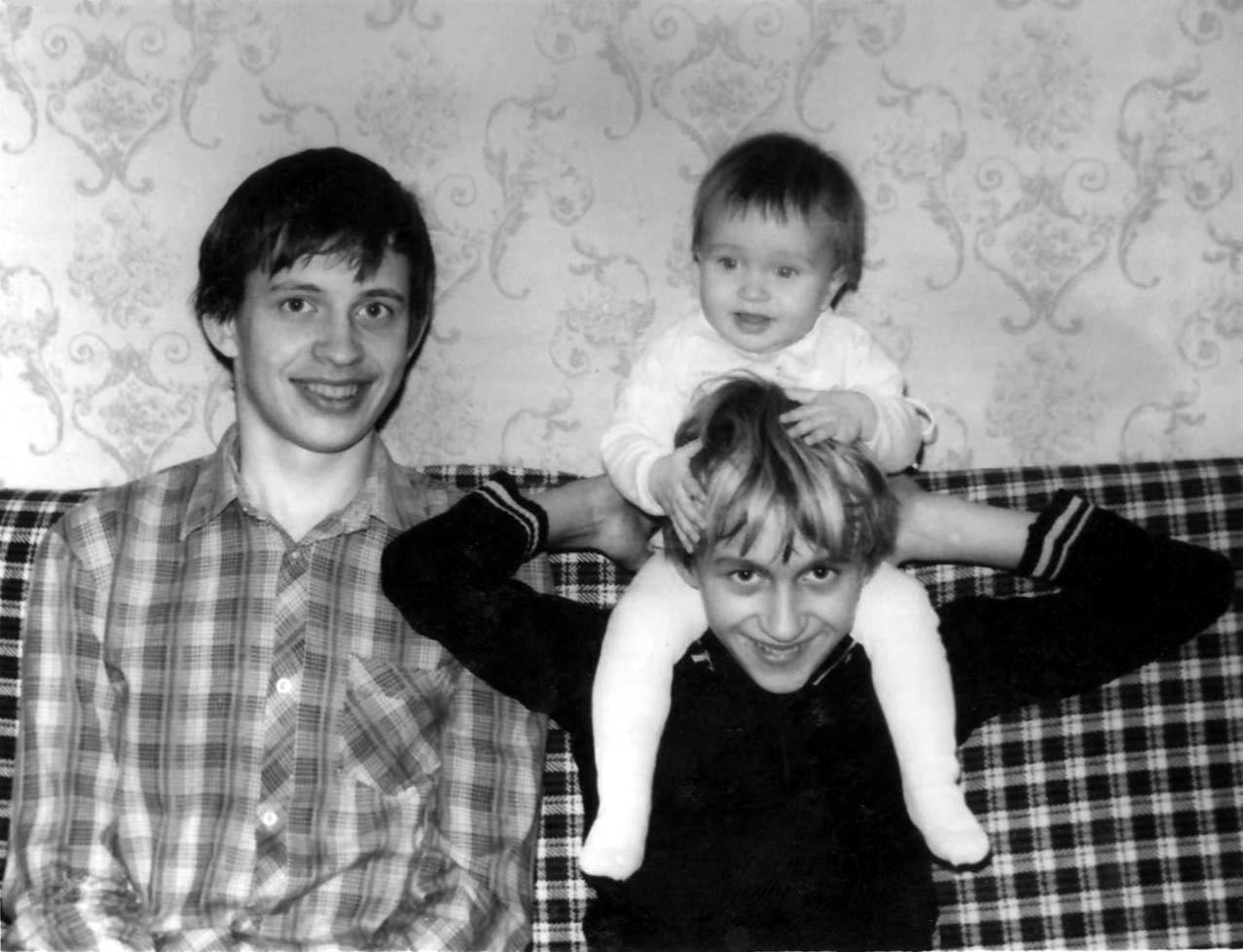
There is a prime-level University NSU with strong physics and math research in Novosibirsk Academgorodok, but Andrey chose the mechanic-mathematical department of Moscow State University where he received specialized training in the computer science. It should be noted that at the time we worked and earned salaries enough to support a family in Novosibirsk. While life in Moscow was more expensive, we could not provide adequate funds for Andrey, so from his second year at the university Andrey worked in a firm that developed a software product analogous to "Wolfram Mathematics". We could judge Andrey's programming skills only indirectly. After his second year he came to Novosibirsk and demonstrated an operating system for the Yamaha PC that he developed together with his classmate Yassen Varde. According to Andrey, it took a fraction of the memory required by the original operating system but had many extra features. It was something home-made yet reliable.
After graduating from MSU Andrey entered post-graduate school in 1992 and defended his thesis titled 'The Eigenvectors of a First-Order Differential Operator Over a Polynomial Ring in Two Variables'. He wrote series of papers and reports on that and similar subjects together with his research advisor Ye.V.Pankratyev.
After post-graduate studies Andrey worked at the MSU laboratory teaching programming and computational math at the University and simultaneously working at Surphaser, a firm developing 3D scanners. The firm was originally based in Moscow until its founder relocated permanently to the USA, taking half of his co-workers with him. At that time Andrey was married to Valentina, his university classmate. They had two daughters. It was a wonderful family with the atmosphere of warmth and mutual understanding. Valentina's parents, retirees, also lived in Moscow where Andrey and Valya supported them so leaving for the USA with the family was not an option. Andrey stayed in Moscow taking on a role of researcher and organizer for their Moscow branch and for the scanners software of their American branch. He took regular business trips to the US. Because of increased work load Andrey left the MSU lab in 2015, remaining on the board of the distance-learning math school at MSU, with which he permanently collaborated.
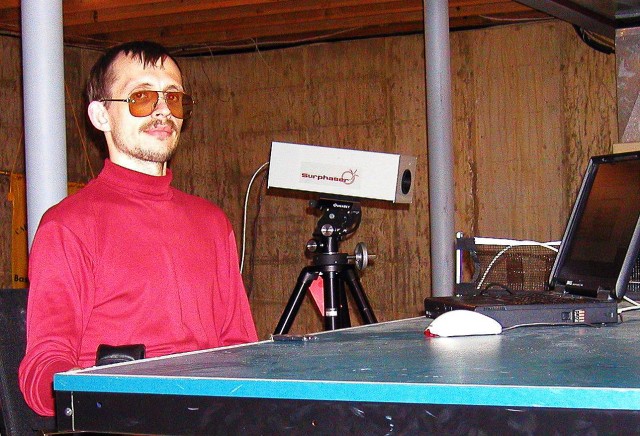
In 1995 Andrey met the neuro-biologist professor L.L.Voronin. He wrote series of programs for processing experimental results and co-authored several published papers. This collaboration with neuro-biologists ended when the team permanently left for work in a university in Germany.
Andrey was marked by phenomenal memory and great erudition in a great variety of fields. He read a lot and instantly memorized what he had read. He had immense patience and kindness. This was probably the reason he was constantly asked to consult on various issues of programming and math from members of numerous forums and networks, where Andrey never refused help to anyone.
Andrey was enthusiastic about things and easily engaged in them. His hobbies changed constantly. From about 2005 he was fascinated with geocaching, and drew our entire family into it including his younger brother Pavel and sister Ksenia. This new application of satellite navigation created an immense internet-club of followers. At about the same time Andrey was taken with astronomy and bought his own telescope. Together with supporters and his oldest daughter Anna, they often traveled to the 'field' to observe another cosmic phenomenon.
In 2008 the family got a dog, a Cardigan Welsh Corgi. The whole family got into training dogs and taking part in various shows (quite successfully), eventually breeding these dogs. After Andrey's passing, three dogs still lived in the family.
A simple toy at a first glance - the Rubik's Cube, from the moment of its appearance took a significant part in Andrey's life. Already in the 80s Andrey mastered assembly of Cubes of various configurations, including blind assembly of Cubes with relief sides. From about 2008 he was drawn into multi-dimensional Cubes and created software for manual and automated solving of puzzles with up to seven dimensions. In 2010 he found an internet club that had grown around the puzzle Magic Cube 4D at Superliminal Software and became a prominent member.
In the beginning of 2016 Andrey was diagnosed with malignant brain tumor. After surgery for partial ablation of the tumor and series of chemo and radiation therapy treatments it seemed that the disease was receding. Andrey and his family even took a boat trip to Solovetsky Islands in the White See in Russia. But in the beginning of November he relapsed requiring further hospitalization. It became clear that fight for life was coming to its tragic end. The incurable cancer disease glioblastoma multiforme claimed another victim. On January 13, 2017 Andrey passed away. He is buried at Volkovsky Cemetery in Moscow.
Andrey left behind a great heritage of high-level developments. Some of them remained in the firm where they learn to apply it for processing scanner data. Another part of Andrey's software on multi-dimensional Cubes was passed on to Melinda Green for open source publication.
Andrey Astrelin was a talented mathematician and computer programmer, and amazingly kind and sympathetic person, a trusted friend, loving son, father and husband. Memory of him will stay with us forever as a legend, as a distant star light.